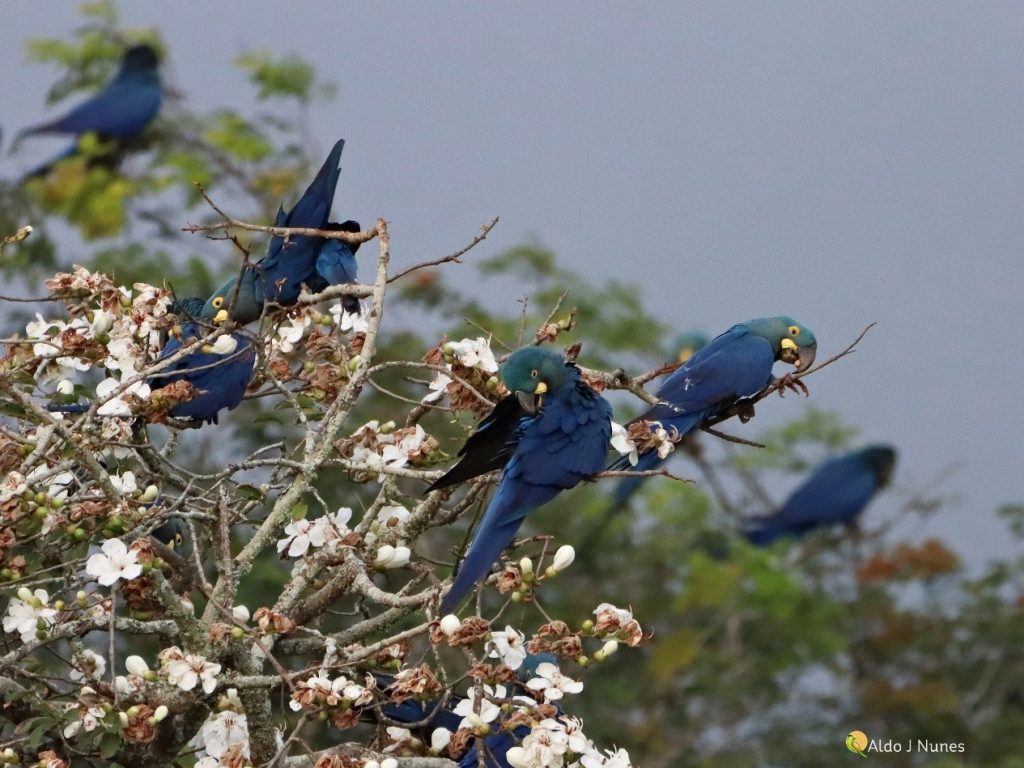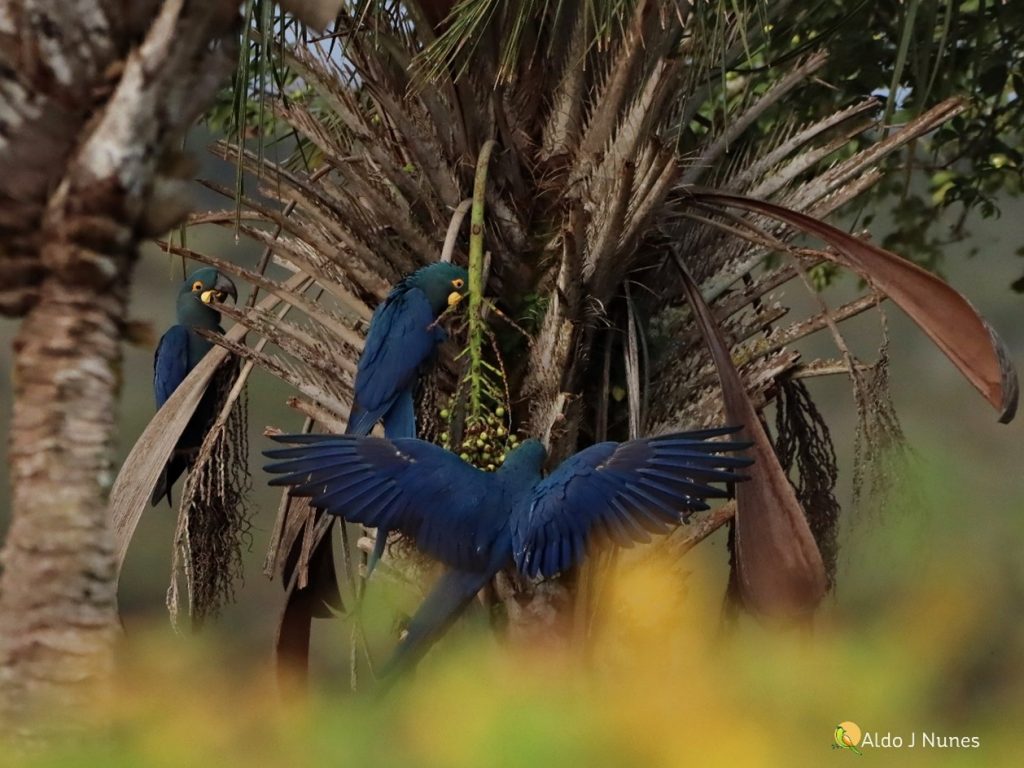The trade in Spix’s Macaw and Lear’s Macaw is already occurring in a disguised way and, this year alone, 30 specimens were sent to a private zoo in India
Between November 6 and 10, the 77th meeting of the Standing Committee of the United Nations Convention on International Trade in Endangered Species (CITES) will be held in Geneva, Switzerland. This international convention, to which Brazil is a signatory, will analyze various proposals to regulate world trade in wild animals. Among these proposals is one that recommends encouraging international trade in the Brazilian species of Spix´s Macaw (Cyanopsitta spixii) and Lear´s Macaw (Anodorhynchus leari). The Spix´s Macaw, a character in the movie Rio, has already been declared extinct in the wild and the Lear´s Macaw is at risk of extinction.
The document to be analyzed states that the sale of these species to private individuals could generate funds to help conservation projects. The world’s largest breeding stock of the Spix´s Macaw is in the hands of an obscure zoo in Germany, the Association for the Conservation of Threatened Parrots (ACTP). The owner of this organization, German Martin Gerhard Guth, has already been imprisoned for various crimes, such as kidnapping and extortion, and his links to a dangerous mafia operating in Germany are well known.
In 2018, in a surprising move, the Brazilian government signed an agreement with Guth’s ACTP for him to build facilities in the region where the macaws occur, in the interior of Bahia, and become part of the recovery program for the Spix´s Macaw (Cyanopsitta spixii). At the time this agreement was signed, several accusations involving ACTP and Mr. Guth were already public, leading dozens of scientific researchers and NGOs to call for an investigation by the German authorities into his activities.
In February of this year, the ACTP transferred 26 Spix´s Macaws and 4 Lear´s Macaws to the private zoo of Indian billionaire Mukesh Dhirubhai Ambani, who has already declared that he is building the world’s largest zoo for rare species. According to a CITES document, the “significant amounts” involved do not constitute “trade” since they will be applied to conservation projects. However, the document does not specify the amounts or where and when these funds will actually be spent.
NGO warns and sues MPF to try to stop initiative that favors animal trafficking and increases the risk of extinction for Brazil’s endangered species
Last week, RENCTAS – the National Network to Combat Trafficking in Wild Animals – sent a document to the members of CITES and the European Commission, warning them about the risks of the recommendations that will be debated at the next meeting and, today, filed a representation with the Federal Public Prosecutor’s Office asking the agency to intervene with the Ministries of the Environment and Foreign Affairs, so that the Brazilian authorities who will be taking part in the meeting in Geneva make a commitment to reject the proposal to commercialize Brazil’s endangered species.
“It’s unbelievable that a country like Brazil should be so irresponsible with its endangered species as to give up its sovereignty by handing over management of the recovery of extremely endangered species, such as the Spix´s Macaw and the Lear´s Macaw, to a highly suspect foreign organization led by a person with a known criminal past,” says Dener Giovanini, general coordinator of RENCTAS.
Still according to Giovanini, the CITES proposal, if accepted, could benefit exactly those who have contributed to wiping out the Spix´s Macaw in the wild, a single specimen of which has an estimated value of €1 million on the illegal market.
For more information: RENCTAS – (61) 3550-7227 / E-mail: cgeral@renctas.org.br
www.renctas.org.br
BELOW ARE PICTURES OF THE LEAR’S MACAW
Photo credit: Aldo J. Nunes


